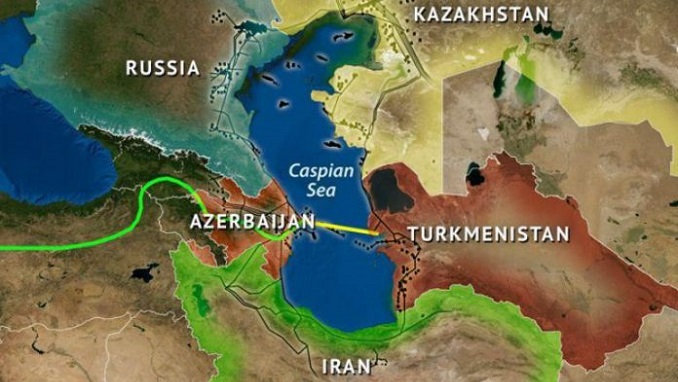The legal status of the energy-rich Caspian basin will be discussed next month by the five states with the territory on the Caspian coastline – Russia, Azerbaijan, Iran, Kazakhstan, and Turkmenistan, Energy Reporters writes. The countries will meet in the Kazakh port of Aktau to draft an agreement on the status of the energy-rich basin and how its resources should be divided.
On Friday, the five Caspian littoral states signed the Environment Impact Assessment Protocol under the Tehran Convention, committing them to follow a set of harmonized practical procedures for assessing the impact that a project will have on the environment in another state.
So far, the construction of pipelines under the Caspian Sea was blocked by Russia and Iran, which cited environmental issues and argued that construction projects need the consent of all five countries.
According to the report, Moscow has probably been motivated by the fear of losing its grip on the European energy markets enjoyed by its state-owned gas giant, Gazprom.
Turkmenistan holds the world’s fourth-largest natural gas reserves (19.5 trillion cubic meters) but the bulk is in the southeast with only 12 percent in the Caspian basin. Its exports are almost totally dominated by China, making the repressive state keen to open a route to the west.
According to Article 14 of the draft Caspian Sea Convention, which is due to be signed at the five-nation summit, states can build underwater pipelines with the approval only of the countries through whose sectors of the sea the pipeline would pass. Azerbaijan and Turkmenistan have both called for this since 2010 but have faced opposition from Russia and Iran.
The environmental cooperation of the Caspian states was praised by members of the international community.
“It’s fantastic to see the Caspian Sea’s littoral states come together and commit to the future well-being of this jewel of the region and unique ecosystem. I’m convinced this will be a big win for the region’s environment, economy, and long-term security,” said UN environment chief Erik Solheim.
“It also sends a strong message around the world that sustainable development is one issue that we can all get behind together.”












